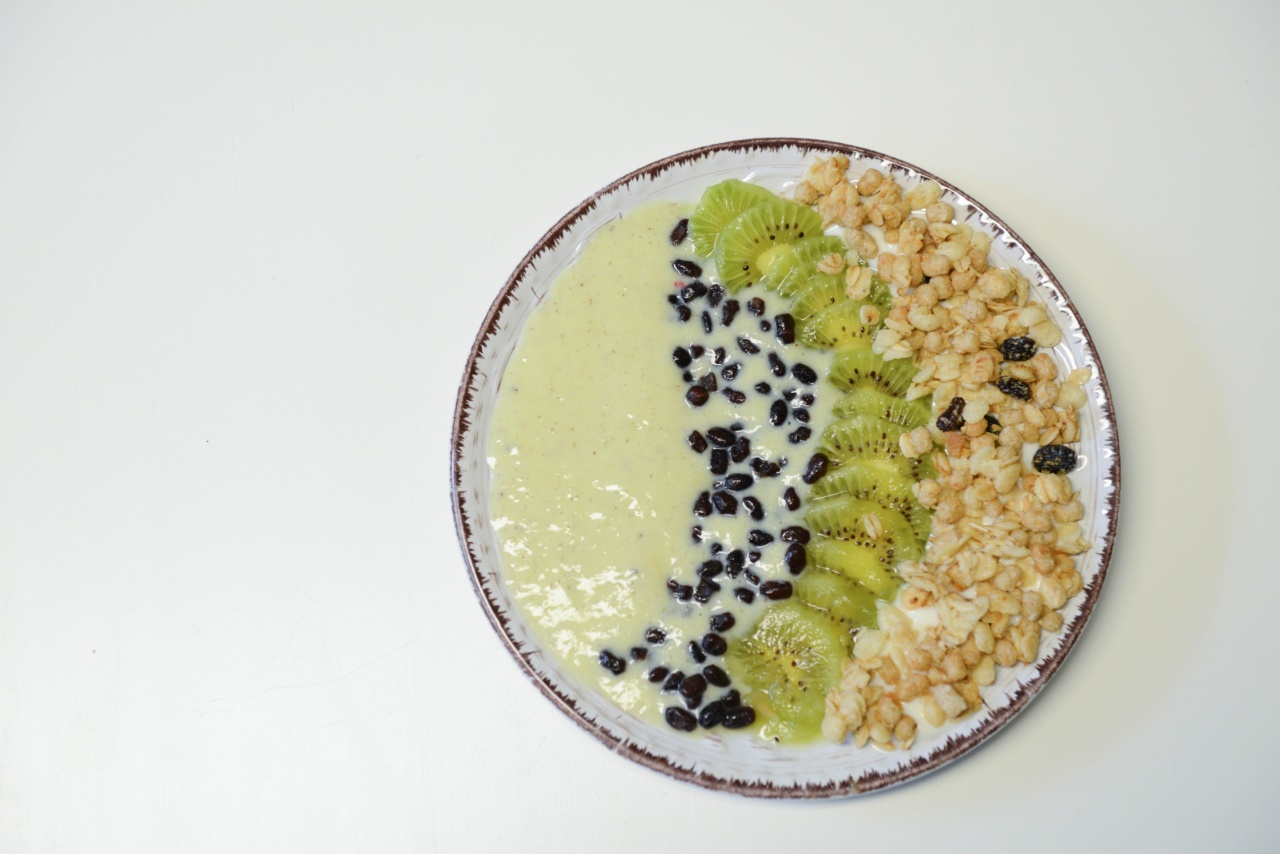Kiwi is a small, oval-shaped fruit that is packed with essential nutrients and vitamins. Originally known as Chinese gooseberry, its name was later changed to kiwifruit after being exported to New Zealand.
Kiwi is bright green on the inside with tiny black seeds and a fuzzy brown exterior. The fruit is juicy and sweet with a tart taste that feels refreshing in the mouth. It can be eaten raw or added to smoothies or fruit salads, making it a popular fruit choice.
Nutritional Value of Kiwi
Kiwi is an excellent source of essential nutrients that a body needs to function correctly. The fruit is rich in vitamin C, vitamin K, vitamin E, and folate. Additionally, it contains other essential minerals such as potassium, calcium, and magnesium.
Eating kiwi provides a significant amount of the recommended daily intake of vitamins and minerals that boost immunity, maintain bone health and optimal heart function.
Health Benefits of Kiwi
Kiwi is known for its numerous health benefits, which make it a valuable fruit in promoting overall body health.
Here are some of the health benefits of consuming kiwi:
- Boosts Immunity
- Improves Digestion
- Helps Regulate Blood Pressure
- Antioxidant Properties
- Promotes Skin Health
- Weight Management
- Smoothies
- Fruit Tarts
- Fruit Salad
- Kiwi Sauce
- Kiwi Infused Water
Kiwi is high in vitamin C, which is a potent antioxidant that helps in boosting immunity. It also helps the body to recover quickly from illness or infections.
Kiwi contains an enzyme called actinidin that breaks down proteins, aiding digestion. The fiber in kiwi also helps in maintaining a healthy gastrointestinal system and bowel regularity.
The potassium content in kiwi helps in regulating blood pressure levels in the body by reducing the effects of sodium.
Kiwi contains an abundance of antioxidants that help in eliminating free radicals that damage cells and cause chronic illnesses such as cancer.
The vitamin C content of kiwi fruit helps in renewing the skin and prevents aging. It also provides protection against the sun’s harmful UV rays that cause skin cancer.
As a low-calorie fruit, adding kiwi to your diet aids in weight management. It also contains dietary fiber, which helps in keeping you full, reducing appetite and promoting weight loss.
Ways to Incorporate Kiwi into Your Diet
With its delicious taste and numerous health benefits, it’s wise to include kiwi in your diet.
Here are some ways to incorporate kiwi into your meals:
Add kiwi to your smoothies to give them a tropical twist. Blend kiwi with other fruits such as banana, pineapple, or mango for a healthy, refreshing drink.
Sweeten up your dessert by adding pieces of kiwi to your fruit tarts. It’s a great way to indulge in sweet treats while still being healthy.
Mix kiwi slices with other fruits such as oranges, berries, apples, and melon to make a refreshing fruit salad. The combination of different flavors and colors will make the salad appealing, and it’s adding more nutrition value to your meal.
Mix blended kiwi with honey, olive oil, and vinegar to make a tangy sauce that can spice up salads, grilled meats, and fish.
Add slices of kiwi to your water for a fruity flavor that’s hydrating as well. The kiwi-infused water has a lovely aroma, and it’s an excellent substitute for sugary beverages.
Conclusion
Kiwi is one of the most nutritious fruits that one can eat. Its high vitamin and mineral content make it a potent antioxidant and immune booster.
Incorporating kiwi into our diet will help ensure that we get enough nutrients that our body needs to function optimally. Its low calorie makes it an ideal fruit for weight loss and management. So next time you are looking for a quick and healthy snack option, reach out to a kiwi.






























